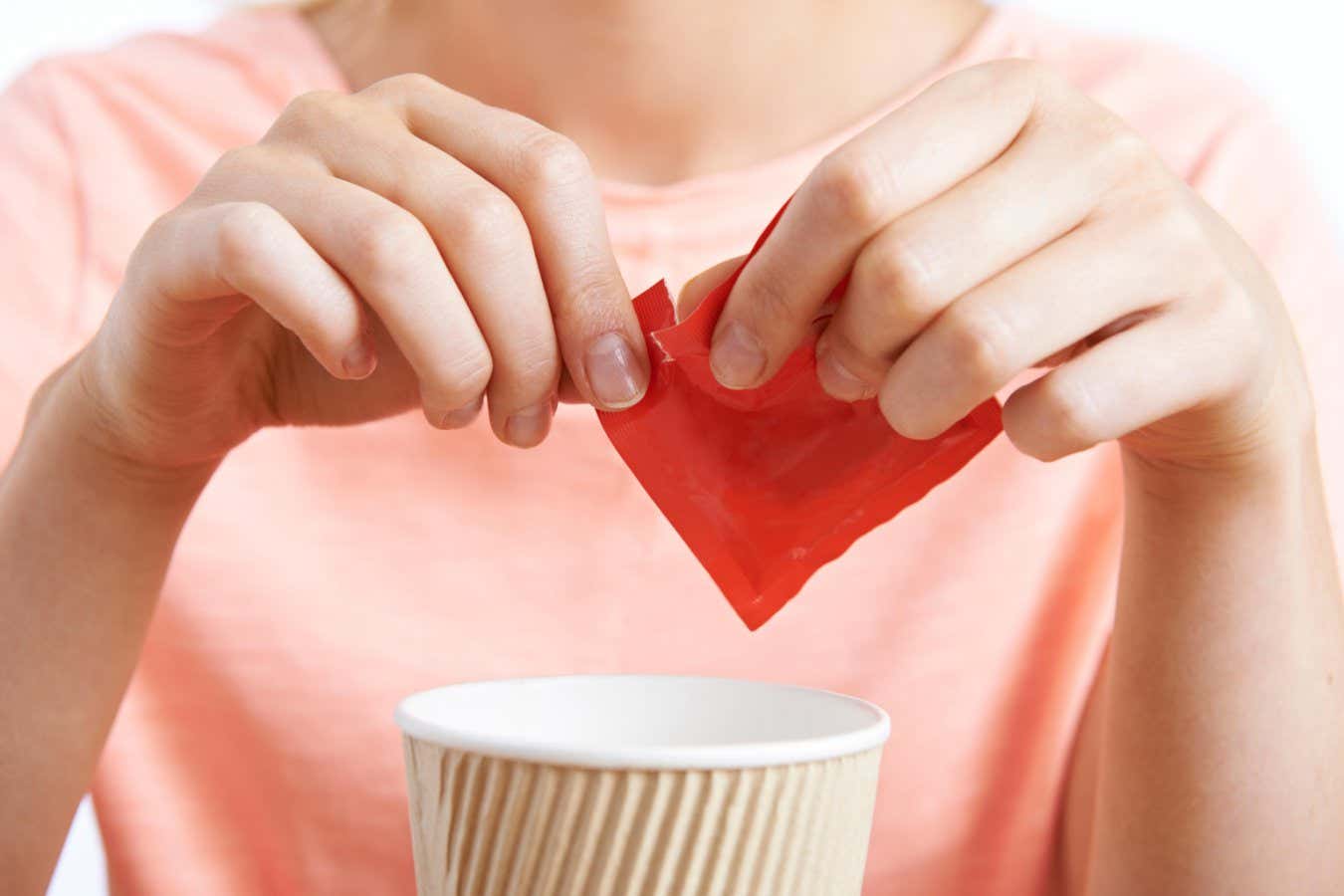People who consume some artificial sweeteners are less likely to respond to certain cancer therapies, potentially because of the impact on their gut microbiome
By Grace Wade
31 July 2025
Some artificial sweeteners can change the composition of the gut microbiome, which impacts health more broadly
Ian Allenden/Alamy
People who consume the artificial sweetener sucralose are less likely to respond to cancer immunotherapy, suggesting the sweetener may blunt the treatment’s effects.
Immunotherapy helps the immune system detect and destroy cancer cells, making it a crucial treatment for numerous cancers. “When it works, it works very well. Patients can be disease free and go about their lives and live for years and years,” says Abigail Overacre-Delgoffe at the University of Pittsburgh in Pennsylvania. “Unfortunately, immunotherapy doesn’t work for all patients, and in many cancer types, it only works for the minority of patients.”
Read more
The shocking discovery that our gut microbiome drives ageing
It isn’t clear why that is, though numerous studies indicate the gut microbiome plays a role, as it helps regulate immune responses. Previous research has also shown that artificial sweeteners can change the composition of gut microbes in humans.
So Overacre-Delgoffe and her colleagues assessed the potential impact of artificial sweeteners on immunotherapy. They tracked treatment outcomes in 157 people who underwent cancer immunotherapy for at least three months. Of the participants, 91 had advanced melanoma, 41 had advanced non-small cell lung cancer and 25 had melanoma that was surgically removed but had a high likelihood of returning.
Before starting treatment, participants completed a questionnaire that assessed their diet over the previous month, which the researchers then used to estimate artificial sweetener consumption.
